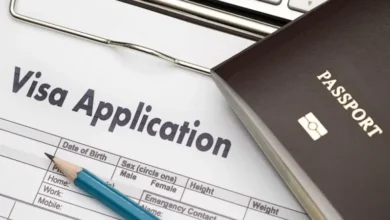Steps to save money during travel

Traveling can be expensive, but with a few strategic tips, you can reduce costs and make the most of your adventure without breaking the bank. Here are some practical steps to save money while traveling:
1. Plan Ahead and Book Early
- Flights: Booking flights in advance can save a significant amount of money. Airlines often offer cheaper rates for early bookings.
- Accommodation: Similarly, booking hotels or vacation rentals early can give you access to early-bird deals.
- Attractions: Look into buying tickets for attractions in advance, as some places offer discounts for online pre-purchases.
2. Travel Off-Peak
- Off-season travel: Traveling during the off-season (when demand is lower) can drastically cut costs for flights, hotels, and even activities. Research the best times to visit destinations when they are less crowded and more affordable.
- Weekdays vs. Weekends: If possible, avoid traveling on weekends, as both flight and hotel prices tend to be higher. Weekday rates are often much more affordable.
3. Use Budget Airlines
- Many budget airlines offer affordable tickets if you’re flexible with your travel dates. Look into low-cost carriers, but be mindful of additional fees, such as for checked luggage or seat selection.
4. Pack Light
- Avoid checked baggage fees by packing light and taking only a carry-on. This not only saves money but also makes traveling more convenient.
- Packing smart, with versatile clothing that you can mix and match, reduces the need for overpacking.
5. Stay in Affordable Accommodations
- Hostels: If you’re open to a more social and basic accommodation, hostels can save a lot of money, especially in expensive cities.
- Vacation Rentals: Booking a home or apartment through vacation rental platforms can be cheaper, especially for longer stays or larger groups. You can also save money by cooking your own meals.
- Couchsurfing: Consider using services like Couchsurfing to stay with locals for free. This not only saves money but offers a unique cultural experience.
6. Use Public Transportation
- Instead of relying on taxis or ride-sharing services, use local public transportation like buses, trains, or subways. Many cities offer tourist passes that provide unlimited travel for a set number of days.
- Renting a bike or walking can also save money, especially in cities with expensive transport systems.
7. Eat Like a Local
- Avoid touristy restaurants and opt for local markets, street food, or small eateries where locals dine. Not only is this cheaper, but it also gives you an authentic taste of the local cuisine.
- If you have access to a kitchen, cooking your own meals can significantly reduce food expenses.
8. Look for Free Activities
- Many cities offer free attractions like parks, museums, walking tours, and historical sites. Research free activities in the destination before you arrive, and make the most of those options.
- Attend free local events, festivals, or cultural activities to immerse yourself in the destination without spending extra money.
9. Travel with a Group
- Traveling with friends or family can reduce costs by splitting accommodation, transportation, and food expenses.
- Group discounts may also be available for attractions or activities.
10. Use Travel Reward Programs
- Sign up for airline and hotel loyalty programs, which often provide discounts, free upgrades, or even free stays after accumulating points. Using travel credit cards that offer cashback or miles can also lead to significant savings in the long run.
11. Be Flexible
- Flexibility with your travel dates, destination, and activities can help you take advantage of last-minute deals and discounts. Some booking platforms even allow you to search for cheaper flights or accommodations on flexible dates.
By incorporating these tips into your travel planning, you can reduce costs and enjoy a budget-friendly trip without sacrificing memorable experiences!










